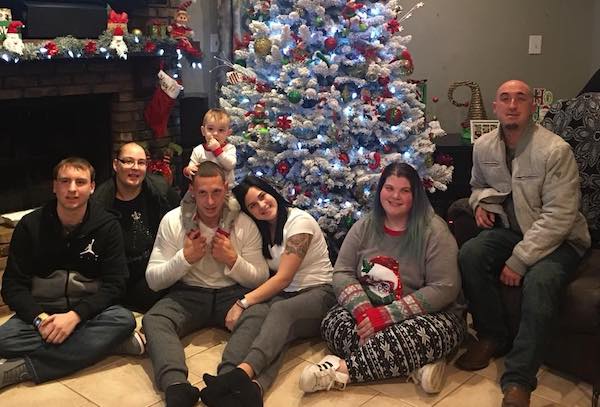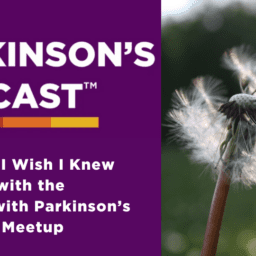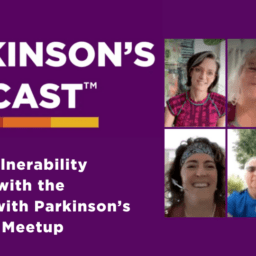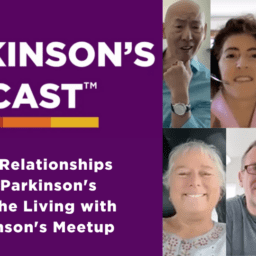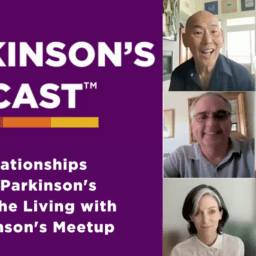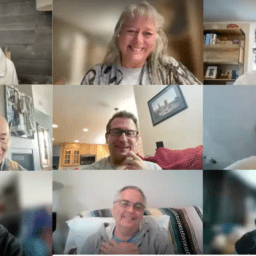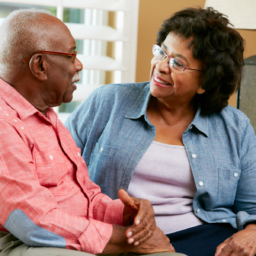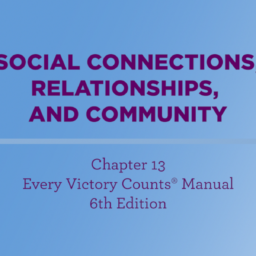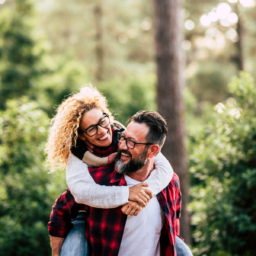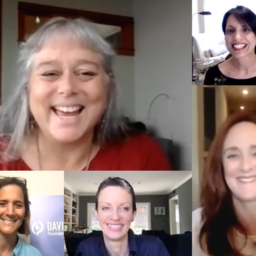We recently published an article called How to Share Your Parkinson's Diagnosis with Family, Friends, and Co-workers. As a follow up to that, Michelle Lane, a Davis Phinney Foundation Ambassador, and the Event Director for Louisiana Walks for Parkinson's, shared a piece she wrote years ago about how to navigate the new reality of Parkinson's with young children. Thank you, Michelle, for sharing your experience and wisdom with us.
Photo: Michelle's two sons, daughter, step-daughter, and grandson.
When I was diagnosed with Parkinson's in 2000, I first thought of my three children and of how my diagnosis would impact them. How would I tell them? Would I be able to help my daughter fix her hair and make-up? Would I be able to walk at their graduations and weddings?
At first, I chose not to share my diagnosis with my children, but I soon realized that I had to tell the older two - Kyle (9) and Erik (6). Their first question was, "Are you going to die?" I reassured them that Parkinson's was not fatal but that sometimes I might need help with small tasks. At the time, neither child asked many questions and seemed relieved to know that I was "okay."
As time went on, I could see small but distinct ways that my announcement changed their behavior. When my son Kyle and I would go shopping, he would hold only my left hand. When I asked him about it, he said he was trying to stop the shaking. Erik decided that he would become a scientist and create a bracelet and anklet that would prevent people with Parkinson's from shaking.
As I considered how to help my boys understand Parkinson's, I received some excellent suggestions from my movement disorder specialist. Upon his request, my husband and I brought the boys on a "special" doctor's appointment. The doctor showed us pictures of the brain, explained the disease in simple terms, and told all of us what it is like to live with Parkinson's.
While this visit was invaluable to my children and me, I continued to see signs of their struggle with my diagnosis. They were unsure how to answer children at school when they asked them why their mom shakes so much, and I continually had to reassure them that I was not going to die. At one point, we decided to seek outside counseling from a psychologist for one of the boys who was having a particularly difficult time adjusting. He taught us tools for coping with this change we found helpful.
For my daughter, Rachel, who was only two years old when I was diagnosed, Parkinson's raised different issues. Rachel and I both had a difficult time dealing with my inability to pull up her long, thick brown hair in a ponytail and have her look like the other girls her age. At first, I asked the stylist to cut her hair short, but now, with adjustments and help from other family members, Rachel is learning to do ponytails on her own. It's just one of the many examples of simple things that Parkinson's can take away from you but that you can take back with a little teamwork.
This ponytail problem, however, turned out to be minor compared to what was to come. Just this year, at age seven, Rachel hit me with a bombshell that I will never forget. I was sitting on my porch enjoying a cool day when she sat on my lap, placed her arms around my neck, and asked, "Why do you have to have Parkinson's?" I tried to explain, but she kept saying, "I want you to be like you were before. It just isn't fair because Kyle and Erik got to see you like you were before, and I never have."
It made me realize that my daughter had many questions that she was trying to understand. We held each other, and she asked what the word "cure" meant. We talked about this, and then she asked the inevitable question: "Is Parkinson's contagious?" I told her that it was not and that I would be around for a long time to answer any other questions that come up. I also set up a phone call with my doctor so that he could have the same conversation with Rachel that he had with my boys.
Of course, my children continue to have questions. When Rachel was seven, she asked me how old I was when I started shaking. I replied that I was 30, at which point she asked if she too would start shaking when she turns 30. As I assured her that she would not, it reminded me that the questions about my Parkinson's probably won't end. But at least I know I am here for my children and plan to be for a long time.
My advice for dealing with Parkinson's is to keep the faith and recognize the strength of your family. Expect that they will have questions and be open to suggestions on how to deal with them. Remember that we are all in this together, and only together will we win this war on Parkinson's.
2020 Note: My children are now ages 29, 25, and 22. Rachel is in her third year of college at the University of South Alabama. My grandson Chandler is three, and he asks, "MiMi, are you stuck? I will help you and tell others to step back. I have this!"
Michelle's Tips for Talking to Your Kids
1. Explain your diagnosis in simple terms, including the symptoms and what behaviors to expect.
2. If you have more than one child, you may want to talk with them one at a time initially.
3. Be prepared to answer basic questions about whether or not Parkinson's is fatal or contagious or if your child will get Parkinson's.
4. Encourage your child to ask questions and be prepared for some of them to be sensitive.
5. Set up a visit for your child with your neurologist to talk about Parkinson's and what to expect.
6. Let your kids know that there will be some changes in daily living and that working as a team will help your family.
7. Explain that people may stare at you because of the motor symptoms of Parkinson's and that it is usually because of curiosity and not rudeness.
8. Talk about how your kids can explain Parkinson's to the friends who ask about it.
9. If your child has a particularly difficult time dealing with your diagnosis, ask your child's doctor to recommend a therapist who specializes in helping children whose parents live with a chronic condition like Parkinson's.
Michelle Lane is a Davis Phinney Foundation Ambassador who lives in New Orleans. She loves helping people who've been diagnosed with Young Onset Parkinson's Disease (YOPD) and those who want ideas on how to communicate about Parkinson's with children.
Want More Practical Articles Like This?
Much more can be found in our latest edition of Davis Phinney Foundation’s Every Victory Counts® manual. It’s packed with up-to-date information about everything Parkinson’s, plus an expanded worksheets and resources section to help you put what you’ve learned into action. Request your copy of the Every Victory Counts manual by clicking the button below.


